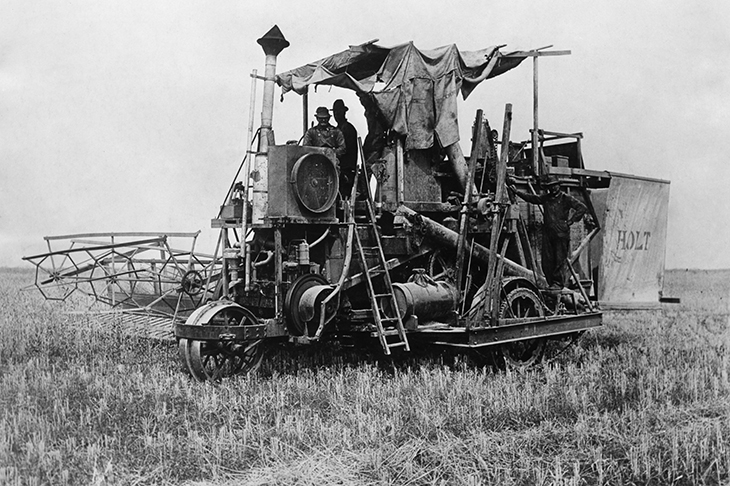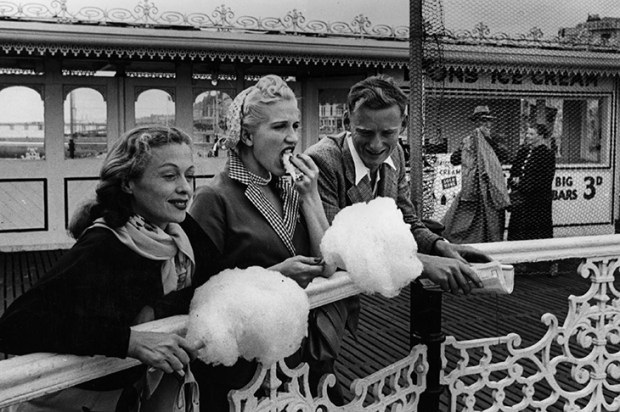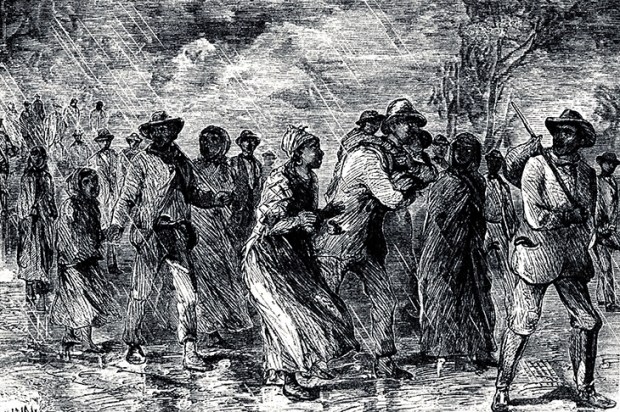Anyone picking up a book by Wendell Berry, whether it be fiction, essays or a collection of his lucid and engaged poetry, will quickly find themselves in the company of one who is unafraid to tackle the larger subjects (time, place, environment, community) in terms familiar to Virginia Woolf’s ‘common reader’, a creature who seems scarcer by the year, but is not yet wholly extinct.
Stand by Me is no exception and, by the time we reach the second of these 18 linked stories, we know just where we are, if not where we are going, as Berry sets out a history of everyday life in a small Kentucky town over 100 years of growth, loss and relentless change. Nevertheless, it may come as a shock that, while familiar, this terrain is more remote than it once seemed and, by the end, little remains of what we used to think of as America: a land whose citizens could once talk about ‘the better angels of our nature’ without succumbing to excruciating embarrassment.
The core values of that America were few and mostly implicit: self-reliance matched by civic responsibility, an aspiration to tolerance, and reverence for a home place that Berry describes as
the product of its own becoming, which, if not accidental exactly, had also been unplanned. It had no formal government, or formal history. It was without pretence or ambition, for it was the sort of place that pretentious or ambitious people were inclined to leave.
In Stand by Me, that home place is Port William, a town that, in 1888, consists of ‘two rows of casually maintained dwellings and other buildings scattered along a thoroughfare that nobody had ever dignified by calling it a street’. That thoroughfare represents the entire life-cycle of most of the town’s inhabitants, running as it does from the school, at one end, to the graveyard at the other, with various stops along the way. It lives by its own rhythms, it grows and alters organically — and it has a long memory, ‘going back from the previous Saturday to the Civil War and long before that’.
Life in Port William is no idyll, however. The 1880s community tolerates a degree of seemingly inevitable lawlessness, while, as the century progresses, a steady intrusion of outside forces (motivated, it would seem, solely by profit, or, as one character elegantly characterises the problem, ‘price wars against value’) degrades the land and the independence of those who dwell there, drawing
life, wealth and intelligence off the farms and out of the country towns…Farm produce leaves the farm to nourish an economy that has thrived by the ruin of the land.
To readers familiar with Berry’s work, this preoccupation with the rural community will come as no surprise. His beliefs can be summed up in a long online interview with Bill Moyers in 2013 where, in a careful and incisive critique of runaway capitalism, he said:
We don’t have a right to ask whether we’re going to succeed or not. The only question we have a right to ask is what’s the right thing to do? What does this earth require of us if we want to continue to live on it?
These are questions that need not just to be stated but dramatised. And in Stand by Me Berry weaves them into the lives of the good, misguided and indifferent folk who make up a Kentuckian town to show that right dwelling cannot happen without a revaluation of community and of mutual support — in a nation where ‘freedom’ is defined by our refusal to ask ‘how much is enough?’.
Got something to add? Join the discussion and comment below.
Get 10 issues for just $10
Subscribe to The Spectator Australia today for the next 10 magazine issues, plus full online access, for just $10.
You might disagree with half of it, but you’ll enjoy reading all of it. Try your first month for free, then just $2 a week for the remainder of your first year.














Comments
Don't miss out
Join the conversation with other Spectator Australia readers. Subscribe to leave a comment.
SUBSCRIBEAlready a subscriber? Log in